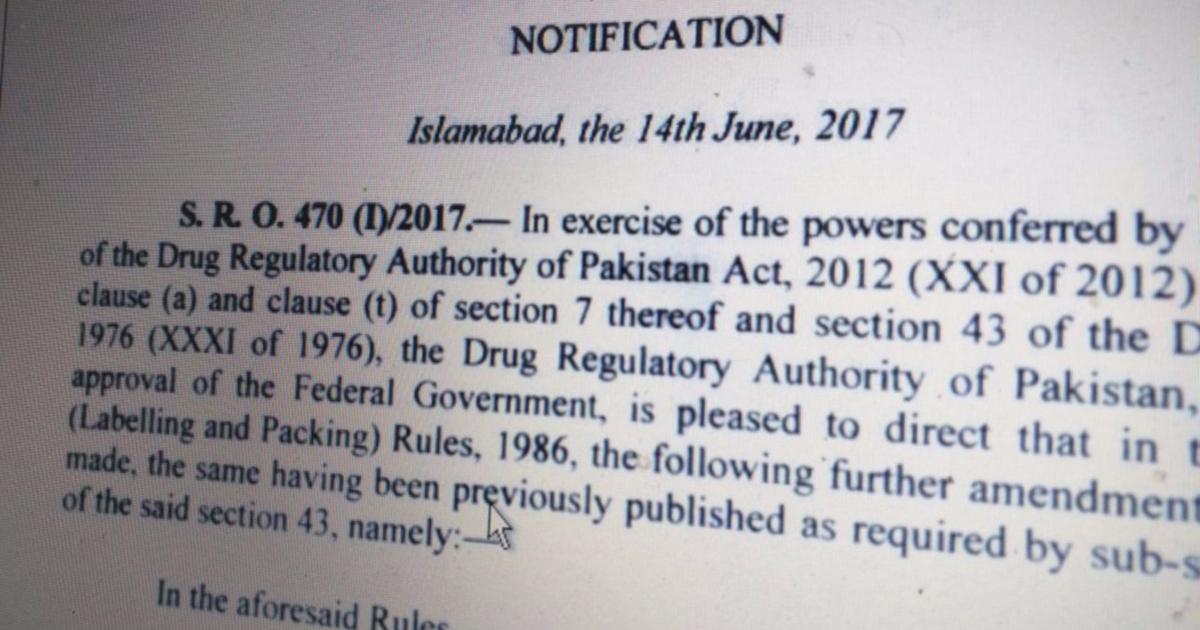FBR: Track and Trace way forward in Pakistan
by Haseeb Uddin · Published · Updated

Enabling Local Environment for Track & Trace (T&T)
The FBR should foster an environment that not only encourages but also supports sectors in adopting T&T by acknowledging the unique challenges and solutions present within Pakistan. Providing policy support to both sectors and local providers is crucial. This approach not only motivates sectors to integrate T&T for improved supply chain management but also underscores the importance of developing technological self-reliance and ensuring financial stability.
Emphasizing local solutions and support facilitates a smoother adoption process, enabling sectors to fully leverage T&T for efficiency and optimization.
Open Standards for Traceability Inclusion
FBR is should prefer open standards over exclusive licenses, which have historically led to monopolistic practices and been a subject of extensive litigation due to loopholes in the law.
These issues have caused significant delays and undermined efforts to implement effective T&T systems. By advocating for open standards, FBR promotes a level playing field for all sectors, encouraging competition, innovation, and compliance with directives.
This approach not only prevents monopolies but also ensures interoperability and collaboration among local technology providers, fostering a healthier, more dynamic market environment.
Prioritizing Local Solutions
Focusing on local solutions enables FBR to preserve foreign exchange reserves and benefits from the adaptability and innovation of local technology providers.
These solutions are often more effective than international alternatives because: a) they are conceptualized with the primary motivation of addressing local issues, ensuring a tailored fit to the unique challenges and requirements of Pakistan; and b) service provision and support are locally available, facilitating quicker response times and easier access to maintenance and updates.
This focus on local solutions not only promotes economic stability but also enhances the efficacy and cost-effectiveness of the solutions.
By prioritizing local capabilities, FBR is investing in an approach that fosters economic growth within the local ecosystem, leveraging the inherent advantages of home-grown technologies and services.
Broadening the Purpose Beyond Tax Collection
T&T should be recognized not merely as a mechanism for tax collection but as a strategic tool for enhancing supply chain visibility. This broader application allows for strategic control over costs and operations.
Enhanced visibility of stock movement through T&T facilitates a deeper understanding of demand and supply dynamics, enabling the optimization of transportation and warehousing costs.
Consequently, this reduces the carbon footprint and creates a more efficient value chain. FBR’s initiative, by recognizing these benefits, positions T&T as a means for sectors to gain significant commercial and operational advantages, thereby increasing their motivation to adopt these systems.
To further encourage adoption, FBR should consider offering rebates or incentives to sectors that integrate T&T into their operations, highlighting the mutual benefits of such an initiative.
Rethinking Security Stamps in the T&T Ecosystem
In the context of developing a more efficient and sustainable track and trace (T&T) ecosystem, the FBR should consider moving away from traditional security stamps. Such physical stamps not only contribute to increased costs and a higher carbon footprint but also necessitate the expenditure of foreign reserves for their production and implementation. The alternative, a digital tax stamp system, presents a compelling case for reform within the T&T framework.
Digital tax stamps offer a more effluent and transparent solution, significantly enhancing the T&T ecosystem’s efficiency. By adopting digital solutions, FBR can leverage the full advantages of digital tax stamps, such as lower costs, reduced environmental impact, and the elimination of the need to spend valuable foreign reserves on physical stamp production.
This initiative draws inspiration from the successful implementation of track and trace programs in the pharmaceutical sector within the European Union (EU: Falsified Medicines Directive (FMD)) across Europe and the Middle East. These examples showcase how digital tax stamps can effectively counteract issues such as counterfeiting and illicit trade while ensuring product authenticity and supply chain integrity.
By aligning with international best practices and learning from the success of digital T&T programs in other sectors and regions, FBR can pave the way for a more modernized, efficient, and environmentally friendly approach to tax regulation and supply chain management in Pakistan.
This shift towards digital tax stamps within the T&T ecosystem not only aligns with global trends but also positions Pakistan to take full advantage of the benefits that digitalization offers for economic growth and sustainability.
Avoiding Currency Volatility Risk
Currency volatility not only impacts the profitability of service providers but also poses a serious risk to business continuity. Past instances of currency devaluation and import restrictions have led to service providers cutting corners, compromising the quality of solutions due to diminished profitability or lack of options.
This scenario highlights a critical challenge for business continuity, especially in sectors reliant on international solutions for regulatory compliance, like track and trace systems mandated by the FBR.
As the chief tax regulatory authority, FBR must prioritize business continuity management. By leveraging local providers, FBR can mitigate the risks associated with currency fluctuations. Local solutions are inherently more adaptable to the economic context of Pakistan, ensuring not just the sustainability but also the continuity and reliability of track and trace services.
In this regard, adopting digital T&T solutions and formulating policies that reflect the economic realities can safeguard against business continuity risks, ensuring that the track and trace system remains resilient in the face of economic challenges.



